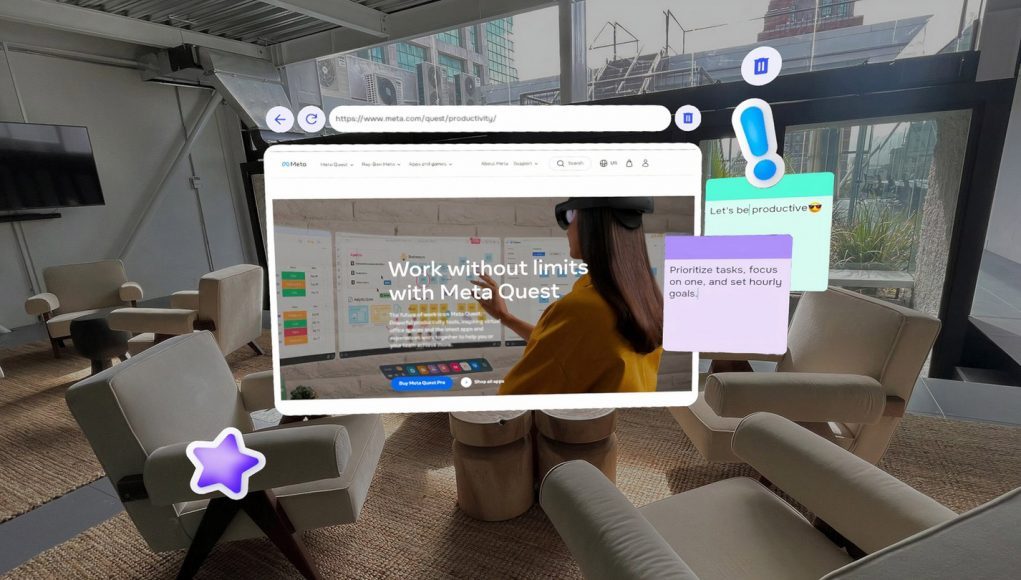Quest headsets have long been great for playing immersive games, but not so great for the kind of basic ‘desktop productivity’ that Apple’s Vision Pro excels at. Now Meta is hoping to bring more ‘spatial computing’ into the fold with the Meta Spatial SDK, which aims to make it easier for Android developers to port and enhance their apps for Quest’s Horizon OS.
It’s been nearly two decades since the launch of the iPhone. Since then, a massive body of mobile app design and best practices has been formulated, resulting in millions of mobile applications available today from the comfort of our phones.
That’s been supported by heaps of tools that developers rely on to build, iterate, deploy, and update those apps—all made for developing flatscreen apps.
But when it comes to Quest, which runs Horizon OS, the vast majority of applications are built using Unity, a comparatively resource-intensive game engine that’s great at real-time graphics, but not so great for making basic flatscreen apps like those we enjoy on our phones.
That is to say: the tools and talent needed to make a VR game are vastly different than what’s needed to make, say, a video streaming app.
Meta wants to move away from Quest being merely a gaming machine. And to do so, the company wants to make it easier for the Android developers of the world to bring their apps to the platform, and to enhance them in meaningful ways for the medium.
This week the company introduced the Meta Spatial SDK which aims to let Android developers use their existing tools and talent to make applications that bring more utility to Quest. The company introduced the tool in a presentation during Connect 2024:
To help developers get started, and to model what can be done with these new tools, Meta has built three sample applications which anyone can download today:
- Focus
- Immerse yourself in Focus, a spatial brainstorming tool designed to enhance your productivity and creativity. Experience a new way of working by building mind maps, prioritizing tasks, jotting down ideas and interacting with AI assistance. Transform your workspace with virtual stickers, arrows and post-its, allowing you to visualize and organize your thoughts like never before. Focus rethinks the traditional brainstorming process, enabling you to fully engage with your projects in a dynamic, spatial environment.
- Immerse yourself in Focus, a spatial brainstorming tool designed to enhance your productivity and creativity. Experience a new way of working by building mind maps, prioritizing tasks, jotting down ideas and interacting with AI assistance. Transform your workspace with virtual stickers, arrows and post-its, allowing you to visualize and organize your thoughts like never before. Focus rethinks the traditional brainstorming process, enabling you to fully engage with your projects in a dynamic, spatial environment.
- Geo Voyage
- Geo Voyage invites you on an extraordinary journey around the globe. With a visually stunning 3D globe and interactive features, this app brings the world to your fingertips.
- Media View
- Experience your photos and videos in a mixed reality environment. Whether for personal projects, professional use, or simply exploring media in a new way, Media View provides an intuitive experience, offering a fresh perspective on an important utility application in a spatial setting.
The hope is that making the process easier will result in more ‘spatial computing’ apps making their way onto Quest, moving the platform from being mostly a gaming console to something that’s more flexible.







